
Forget the stigma and shame. Financial expert Bruce Sellery helps you understand bankruptcy and how to decide whether it's the right decision for your family...
- Subject:
- Business
- Financial Literacy
- Material Type:
- Activity/Lab
- Date Added:
- 02/26/2024

This collection features resources to support teaching Financial Literacy to learners of all ages. We strongly encourage you to visit the Financial Literacy Hub for a variety of very useful curated collections curated by grade, outcome and module.
November is Financial Literacy month in Canada!

Forget the stigma and shame. Financial expert Bruce Sellery helps you understand bankruptcy and how to decide whether it's the right decision for your family...

Use an ATM to check account balances and withdraw money.
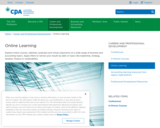
Live and on demand webinars about accounting careers and skills.
Explore online courses, webinars, podcasts and virtual classrooms on a wide range of business and accounting topics. Apply filters to narrow your results by date or topics like leadership, strategy, taxation, finance or sustainability.

Students can explore a (lengthy) article entitled "18 Ways To Make Money Online and Offline in Canada". The article can be shared in groups as there are different sections with different work environments and arrangments. The students can work on two different assignments to explore the vocabulary, short answer, multiple choice and open ended questions to learn more from this article.

The material in this lesson will help students become aware of the warning signs of financial difficulties. When difficulties arise, students should first contact their creditors. Next, efforts should be made to revise spending patterns. In addition, assistance from a Credit Counseling service agencies might be considered. What if these actions do not help?

This workbook will help students understand the various banking fees that can be incurred and aware of the banking options and types of accounts that are suited to individual needs. Students will explore the services offered by banks, trust companies, and credit unions, various fees charged by banking institutions and outline some of the factors to consider when choosing a chequing account.

This collection features resources to support teaching Module 26B: Handling Debt Problems B from the Saskatchewan Financial Literacy curriculum. This activity suggests articles, websites, assignments, and discussion topics to help develop some problem-solving skills in relation to managing debt problems.
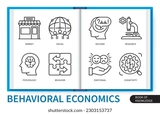
Part of micro-economics involves financial decision making at an individual level. Understanding "why" we do what we do, when it comes to decision making, will form an important foundation to making financial decisions. Cognitive Bias is a systematic error in thinking that occurs when people are processing and interpreting information in the world around them and affects the decisions and judgements they make. These two documents allow students and teachers to work through cases and situations where various types of cognitive bias exists and how it may impact decision making.

Broke is a documentary about sports stars who went from having millions of dollars to being broke and the mental anguish that comes along with this. The movie explores why this happens, mostly due to how many of the individuals lacked basic financial literacy skills. Students will develop 5 lessons / take-aways that they learned from the movie that the rest of us can learn from? They will discuss the themes and lessons shared regarding making responsible financial decisions, ways to gather information and explore how financial security (or lack of it) can have a major influence on mental health and well-being.

Students will examine current personal money management habits by answering budgeting questions. This activity can help students realize that they are “throwing away” or saving real money based on their choices and actions. You could collect the money that “costs” them and add up the total class amount “spent” on making poor budgeting decisions. Discuss as a class how much has been wasted. Ask the students to reflect on how much money they have left. Did they “spend” all their money or end up with lots of money.

Outcome: FL10.5 Examine the role of personal budgets and their importance for financial planning. Indicator: i. Create and justify a personal budget for a hypothetical scenario that includes income and expenses. Students will read Gabrielle’s story and examine her budget. Use the table or budget sheet to set up and maintain Gabrielle’s budget. Then the students will need to re-do her budget for the next month to make it work that she doesn’t spend more than she earns. There is a final reflection and analysis for the students to learn from this budget activity and how it will help them in the future to budget unanticipated items as well.
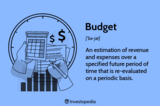
This lesson includes full classroom sequence including suggested intro activities, timing, formative and summative activites, and context for teaching. In this lesson, students will identify and review their expenses and income and learn to create a budget. At the end of this lesson, students will: know, understand and/or can distinguish between needs and wants and create a personal budget. According to a FCAC’s 2024 Canadian Financial Wellbeing Survey, 53% of Canadians have household budgets. 62% of respondents say their debt increased by more than $5000 in the past 12 months and only 54% had an emergency fund to cover 3 months of expenses (down from 64% in 2019) 32% of Canadian say they are short on money at the end of the month (vs. 19% in 2019), which means budgeting isn’t going as well as it should be. So, since budgeting seems to aid in your financial health, why don’t most Canadians follow their budget?
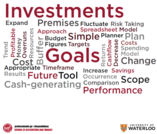
Students will work through a budgeting workbook, choosing their expenses and overcoming unexpected items each month. Step 1, the student will use a dice to determine their future job, which will be used throughout the activity. Step 2 guides the students to calculate their take home pay using step by step guide to take off deductions from the paycheck. Step 3 allows the students to make life decisions for how they want to live and determine how much those decisions will costs (tracking the happiness points that go along with each choice). Step 4 is a fun part of the budget where "stuff happens" which impact their monthly finances and happiness points. There is a summary activity to find out if students are able to fund their monthly budget, even with the unexpected. There is a final reflection and analysis for the students to learn from this budget activity. Students will need this workbook, a dice (could be virtual), and a calculator

This collection features resources to support teaching Module 6C: Applying Personal Spending Plans from the Saskatchewan Financial Literacy curriculum. In Round 1, students learn to allocate their "20 bean salary" according to which options they want to spend their beans on. Round 2 forces the students to reduce their salary to 13 beans and make decisions about where they should make their "cuts". Round 3 includes some "life happens" challenges that allow students to make more decisions on where to move the beans in order to deal with the situations. This activity completes with some reflection questions on how this activity relates to budgeting with real income.

Use the course content in your own program and help your students develop an understanding of how the Canadian tax system works. Modules: Purpose of taxes, Starting to work, Lesson plan: Working for an employer, Lesson plan: Working for yourself, Lesson plan: Preparing to do your taxes, Lesson plan: Completing a basic tax return, Lesson plan: After sending us your tax return, Lesson plan: Using My Account, Lesson plan: Accessing your benefits and credits

In this activity, students will explore a job as an Uber driver. There are some clear perks of working in the gig economy, such as being your own boss and working flexible hours. But it might not be as easy as it seems. You’re a full-time Uber driver with two kids to support and a $1000 mortgage payment due in a week. Can you earn enough to pay the bill -- and make more than other players?Students will keep track of their activities in the game, their choices (to pick shifts or spend money) and how they did during the game over (able to pay bills, balance life with a job that side hustle and varying hours).
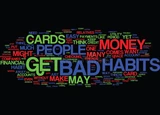
Smart money management requires building a foundation in strong, healthy financial habits. In this activity, we’ll learn about how habits work and then apply that knowledge to a financial habit that you’d like to change.Have students think about a financial habit they would like to change, and then answer the questions in the booklet.
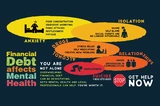
There are several interesting articles written by Anne Gaviola on Vice focused on Canadian finances, debt, and correlations between money and a person’s well-being. Keeping your debt a secret can mess with your mind and body. The culture of secrecy around debt causes young people to suffer in silence, making it even harder to manage debt. Use this content for case-based learning opportunities.

In this lesson, students will learn how to read and interpret a credit report, and in the process they willdevelop an understanding of how their spending affects their credit history. They will learn about the credit bureaus in Canada, what information they track and who can review the report. An important question the students will investigate is "what does the credit file tell others about them?" There is also a sample credit report from Equifax on Jane Doe for the students to review and analyze.

Teachers can use this resource to debate as a class or have the students reflect and answer on their own. It works well to divide the class into four groups and assign the students a topic (for or against). They may not agree with the topic they have been given, but that's the importance of debate- to allow a person to see both sides and why someone would support an argument different than your own.